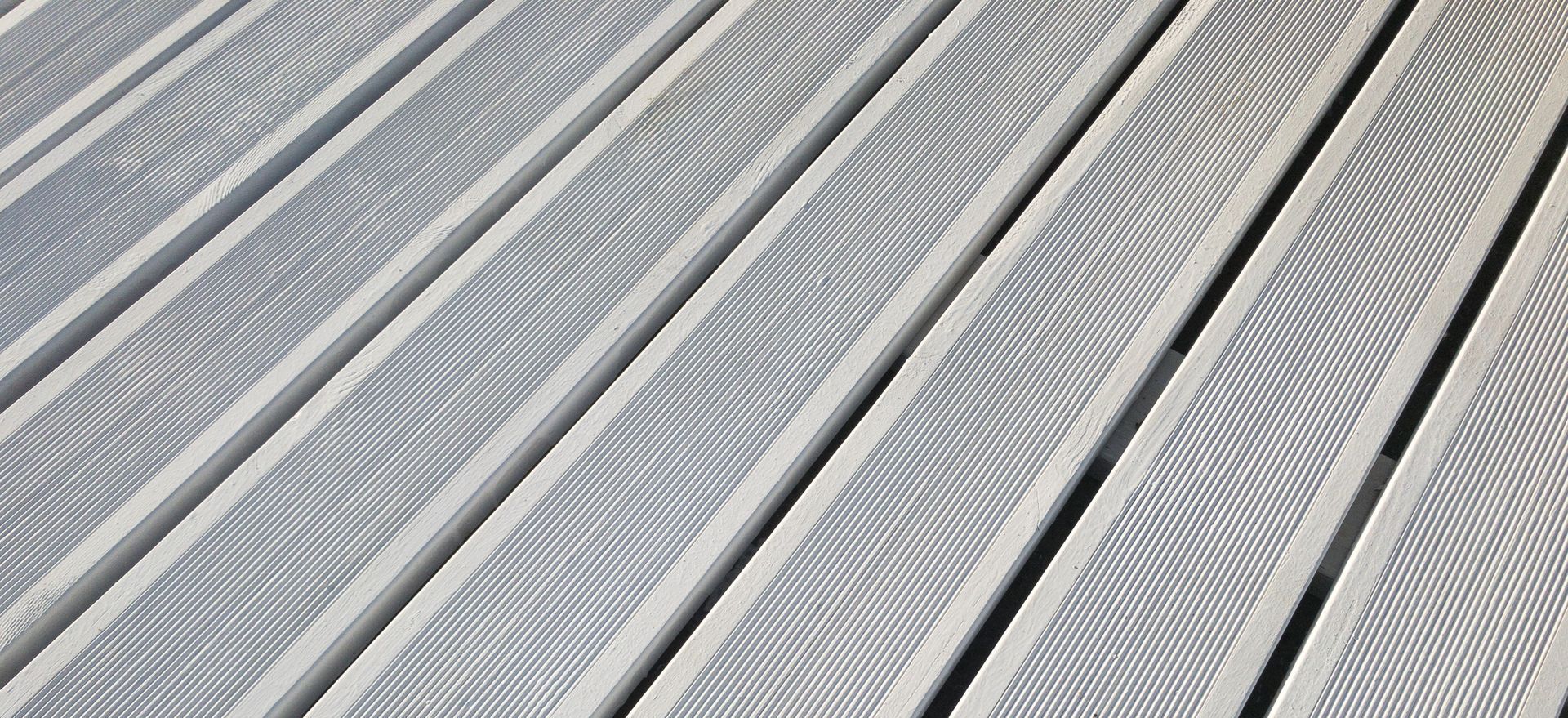Composite and PVC Decks
Chattanooga, TN
What Is Composite and PVC Decking?
Composite and PVC decks are popular alternatives to traditional wood decking, offering durability, low maintenance, and a wide range of design options. While they share some similarities, there are key differences between the two materials.
Composite decking is made from a blend of wood fibers (often recycled) and plastic materials. The combination of wood and plastic creates a product that seeks to capture the benefits of both materials. Composite decking is known for its durability and resistance to rot, decay, and insects. The plastic content provides protection against moisture-related issues, making it suitable for a variety of climates. PVC decking, as the name suggests, is made entirely of polyvinyl chloride (PVC). It is a synthetic material that does not contain any organic fibers, making it resistant to issues like rot and decay. It is an ideal choice for areas with high humidity or near water, as it does not absorb water.
At Deck Builders of Chattanooga, we custom build and install high performance composite and PVC decks for homeowners just like you. Call us today at (423) 551-9856 for more information or to get your no obligation free quote!

The Top Benefits of A Composite or PVC Deck
High Durability
Composite and PVC decking are highly durable and resistant to the elements. The materials are mostly impervious to rot, decay, and insect damage. This durability ensures a longer lifespan for your deck. Composite and PVC decking are designed to resist fading, staining, and general wear and tear over time, allowing them to maintain their appearance for longer.
Moisture Resistance
Composite decking is inherently resistant to moisture, making it an excellent choice for areas with high humidity or proximity to water. Unlike wood, it won't warp, split, or rot when exposed to moisture. On the other hand, PVC decking is entirely synthetic and does not contain any organic fibers, making it highly resistant to moisture as well.
Low Maintenance
One of the major advantages of composite decking is its low maintenance requirements. It doesn't need to be stained, sealed, or painted like traditional wood. Periodic cleaning with soap and water is typically sufficient to keep it looking its best. PVC decking also requires minimal maintenance. It doesn't need to be stained or sealed, and cleaning is usually straightforward with soap and water.
Enhanced Aesthetics
Composite and PVC decking come in a variety of colors and textures. Some options feature realistic wood grain patterns for a more authentic look while other options have a more contemporary appearance. The color of these decks are easily customizable to the match your desires.
What Exactly Makes Composite and PVC Decking Different?
Composite and PVC decking stand apart from traditional decking due to their high performance material compositions that address several challenges associated with traditional wood decks. Traditional decking, often made from natural wood, is susceptible to issues such as rot, decay, insect infestation, and the need for regular maintenance. In contrast, composite decking combines wood fibers and recycled plastic, creating a durable and low-maintenance material. Composite decking achieves this while offering a natural look of wood without its vulnerabilities. PVC decking, on the other hand, is entirely synthetic, composed of polyvinyl chloride (PVC). This composition makes it completely resistant to moisture, insects, and decay. Unlike traditional wood, both composite and PVC decking boast resistance to warping, splintering, and fading, ensuring a longer lifespan and reduced maintenance requirements. The innovative material compositions of composite and PVC decking provide homeowners with aesthetically pleasing and resilient alternatives to traditional wood.
Some notable drawbacks of composite and PVC decking are cost and heat retention. Composite and PVC decks are typically more expensive than wood decks due to their premium benefits and composition. Composite and PVC decks also tend to absorb and retain more heat, causing them to be hotter in direct sunlight. However, more importantly, they provide homeowners a durable, aesthetic, and low maintenance alternative to traditional wooden decks.
Composite Vs PVC Deck: Which Is Better?
The choice between composite and PVC decks depends on specific preferences, priorities, and the desired characteristics for your dream deck as a homeowner. Composite decking offers a natural wood look with added durability and low maintenance, while PVC decking is lauded for its unparalleled durability, moisture resistance, and minimal maintenance requirements. Composite decking is an excellent choice for those seeking a balance between aesthetics and performance. On the other hand, PVC decks are ideal for resistance to water and moisture, potentially making them a better option for decks without covers or pergolas. While both options share advantages such as resistance to rot, insects, and fading, the decision ultimately comes down to factors like budget, moisture resistance, and aesthetic preferences. Homeowners looking for a sleek, modern appearance and superior moisture resistance might lean toward PVC decking, while those prioritizing a more natural wood appearance and a balance between cost and performance might opt for composite decking.
Contact Us - We Are Local!
Home Page Bottom Form
Thank you for contacting us. We will get back to you as soon as possible. For speedier and more urgent service, feel free to give us a call at 828-818-8482.
Please try again later
Location
Call

Chattanooga's #1 Deck Builders
Pages
Working hours
- Mon - Sat
- -
- Sunday
- -
All Rights Reserved | Deck Builders Chattanooga TN | Powered by AZL Digital
